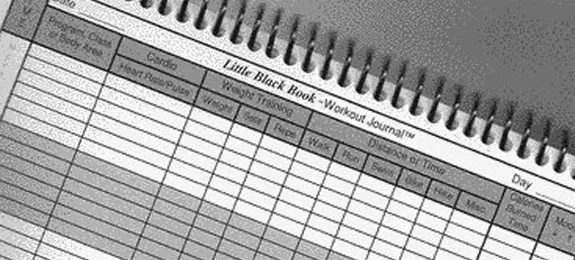It’s easy to tell yourself that it’s time to improve your health with diet and exercise. It’s easy to buy a gym membership. It’s even easy to go regularly for the first week or even the first month.
However, at some point, most people fail to achieve their goals. Making changes to your lifestyle is easy, but sticking with them is the difficult part. Somewhere along the way, you lose focus or motivation. You might just get bored and find it hard to continue.
Setting The Foundations – Give Yourself Goals
What can you do to prevent yourself from being part of that majority of people who quit before they make any progress at all?
Many people make New Year’s resolutions or decide in spring that it’s time to get ready for swimsuit shopping and summer beach trips. There is nothing wrong with this approach, but obviously, something is missing if so many people fail. The trick is to figure out where they go wrong and do it differently to avoid ending up the same way they do, with a gym membership and workout clothes that you never use.
The first step is setting a definite goal. Avoid general goal statements like “I will work out more” or “I want to lose weight.” Setting goals that are too vague make it hard to figure out what changes you need to make in your life to achieve that goal. If you try to make too many changes you can easily become unfocused and try to do too much, overextending yourself and making it much more tempting to just quit. If you plan on working out more, do you want to get fit, or do you want to compete in marathons or weightlifting competitions? If you want to lose weight, how much weight? Try something more specific like “I will gain twenty pounds of muscle mass” or “I will lose fifty pounds.”
Setting realistic goals makes you much more likely to achieve them. If you decide to intensify your routine by increasing from three to five days a week at the gym, consider what impact this will have on school, work or family responsibilities.

Having one big goal in mind works to give you an idea of your destination, but benchmarks are a good way to keep you on track. If you want to drop three pants sizes, start by giving yourself a deadline to lose five pounds.
Reaching smaller goals helps you mark your progress and keeps you motivated to This will help you avoid procrastinating.
When you make a resolution in January, December looks far enough away that you can slack off to focus on something else for just one week. One week can turn into two weeks, which can turn into three months. By the time you realize how much time has passed while you’ve been slacking, a quarter of your year has passed. Keeping smaller goals helps give you something tangible to work toward in the short term while keeping you on track to your long-term goal.
Keeping Track of Progress
Find a way to keep track of your progress. If you’re just starting out on a brand new fitness regimen, your progress will be easy to see, since you’re likely to experience fairly dramatic changes to your body. However, if you have been on a fitness program for some time and your goal is related to stepping up your routine, it may be more difficult to see your progress. When you set your goal, take photos of yourself to use as before photos, and take the measurements of whatever body parts you are working on. Update your photos and measurements on a regular schedule, whether it’s weekly or once every two weeks. This gives you a way to check in to see how you are progressing in your fitness goals. If you feel your progress is too slow, you can consider intensifying your routine.
Keeping smaller goals also gives you an opportunity to reward yourself for making progress. Working all year toward one goal can be grueling. After a while, the tedium of doing set after set of machine exercises will become boring, especially if you feel like there’s no end in sight. If you are working toward a smaller goal on a timeframe and you meet that goal, rewarding yourself can motivate you to continue working toward your main goal. Make sure the reward is appropriate for the benchmark you have achieved, and stay away from food rewards.
One way to set realistic goals and stick to them is to find someone to be accountable to. Few people can succeed in making lasting changes in their lives without some support.
Personal trainers are great, but if your finances can’t accommodate that, then find a workout buddy. Try pairing up with someone in your family, a friend or even someone in your gym who is at a level similar to yours. Justifying to yourself why you can’t go to the gym after a long workday is easy, but it’s harder to weasel out of it if you’ve got a friend hounding you to get to work. When you start feeling like you’re stagnating, you’ll have someone to remind you of the progress you’ve made and to push you.
Conclusion

Even if you fall short of your main goal at the end of your deadline, you’ve probably made some progress. Learning from your mistakes and setting new goals to match your progress is the next step. In fact, even if you met your goal, remember that good health and fitness are not a destination. You might get to the end of, reflecting on the changes you’ve made and decide it’s time to push yourself further and harder. Looking over your progress photos and notes and determining which factors affected you negatively and which ones affected you positively can help you determine what you should focus on for your next project. Perhaps you feel like it’s time to step out of the gym and compete, or if you are experienced in competing, pursuing a sponsorship could be your next target. When you realize what you are capable of, new milestones you thought were out of the question might be in your crosshairs.
Tip: If you're signed in to Google, tap Follow.











